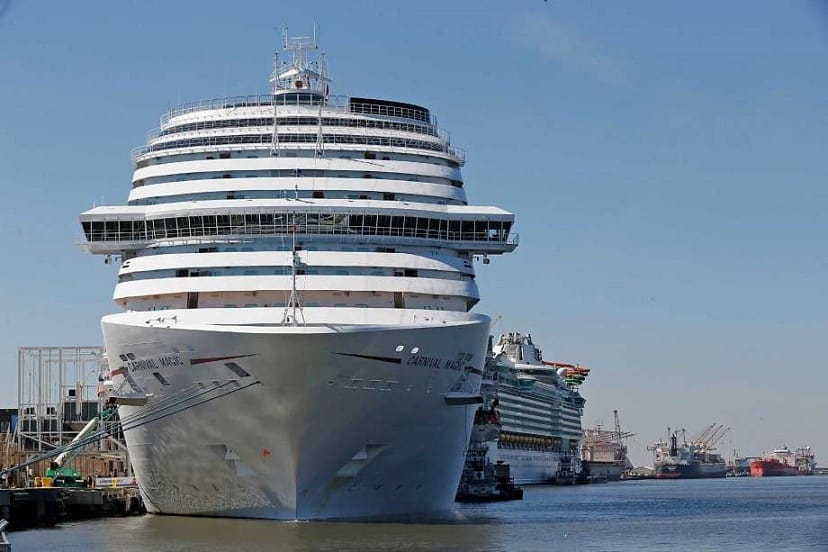In this week’s travel law article, we examine the case of McIntosh v. Royal Caribbean Cruises, Ltd., Case No. 17-cv-23575-KING (N.D. Fla. February 7, 2018)(McIntosh I) and McIntosh v. Royal Caribbean Cruises, Ltd., Case No. 17-cv-23575-KING-TORRES (April 10, 2018)(McIntosh II), a purported class action, which arose “from a cancelled cruise that was set to leave the Port of Galveston in Texas on August 27, 2017, which date coincided with Hurricane Harvey’s landfall along the Gulf Coast in eastern Texas…Plaintiff’s Complaint alleges…the Defendant’s decision not to cancel the subject cruise until the day it was set to sail, coupled with notices Defendant issued in the days leading up to the cruise that it was still on schedule, forced thousands of people to travel to the Houston area, placing themselves directly in the path of the storm (forcing) would-be passengers to endure torrential rains and dangerous hurricane conditions…suffering a long list of grievous injuries ranging from being injured on or about their bodily extremities, to ‘temporary and/or permanent physical disability’ to ‘mental and emotional anguish’ and ‘feelings of economic insecurity’.
Plaintiff’s complaint alleges that these injuries were all caused by Defendant’s failure to cancel the trip sooner, failure to warn of the dangers of traveling to a hurricane zone during an impending hurricane, and failure to promulgate refund policies aimed at ensuring the safety of passengers…these actions were so outrageous as to amount to an intentional infliction of emotional distress”. Motions to dismiss Complaint (McIntosh I) and Amended Complaint (McIntosh II) granted.
In McIntosh I the Court noted that “Defendant argues that the complaint must be dismissed because, as pled, Plaintiff herself does not allege that she sustained any injuries, what they were, how she was injured, or that she even traveled to the Houston area like the class of people she hopes to represent. Moreover, Defendant argues that Plaintiff’s claim for intentional infliction of emotional distress fails to state a claim, as Defendant’s alleged actions and inactions were not sufficiently outrageous to maintain such a claim”
No Damages Alleged
“General maritime law applies to this case. To state a negligence claim, Plaintiff must allege that Defendant had a duty of care…breached that duty, that such breach was the actual and proximate cause of plaintiff’s injury and that Plaintiff suffered damages…Fatal to Plaintiff’s negligence claims is her failure to allege that she herself suffered injury or damages. While she recites a laundry list of harms allegedly suffered by the class she hopes to represent, she fails to allege any specific harms that befell her as a result of Defendant’s various alleged failures and negligent acts…while she alleges…that thousands of would be cruise passengers were forced to travel to the Houston area because of Defendant’s negligence, thereby putting them in harm’s way and forcing them to endure said laundry list of harms, Plaintiff does not allege anywhere in her complaint that she herself traveled to Houston and endured these harms. Accordingly, Plaintiffs complaint does not plausibly state a claim for negligence and must be dismissed (without prejudice)”.
Intentional Infliction Of Emotional Distress
“Plaintiffs intentional infliction of emotional distress claim is due to be dismissed with prejudice…in order to maintain such a claim, a plaintiff must allege conduct…so outrageous as to go beyond all bounds of decency, and to be regarded as odious and utterly intolerable in a civilized community. A plaintiff will rarely (be) able to state a claim for intentional infliction of emotional distress in Florida (citing Wallis v. Princess Cruises, Inc., 306 F. 3d 827, 842 (9th Cir. 2002)(finding no outrageous conduct where crew member on cruise ship remarked in the plaintiffs hearing after her husband fell overboard that her husband was probably dead and that his body would be sucked under the ship, chopped up by the propellers and would probably not be recovered); Garcia v. Carnival Corp., 838 F. Supp. 2d 1334, 1339 (S.D. Fla. 2012)(finding no outrageous conduct where crew members assaulted cruise passenger and prevented her from leaving her room for a period of time); Wu v. NCL (Bahamas) Ltd., 2017 WL 1331712 at 2* (S.D. Fla. 2017) (dismissing with prejudice intentional infliction of emotional distress claim against cruise ship where allegations included deliberately failing to monitor children’s area or train children’s area staff solely to save money and disregard the risk to children posed by multiple hazards in children’s area). Plaintiff’s complaint fails to allege conduct sufficiently outrageous to meet the requirements of Florida law for such a claim and must be dismissed”).
McIntosh II
In McIntosh II the Court addressed the issue of whether a class action waiver in the cruise contract was enforceable. “Under general maritime law, a term or condition of a cruise ticket contract is enforceable once it is reasonably communicated to the passenger (citing Carnival Cruise Lines, Inc. v. Shute, 499 U.S. 585, 595 (1991)…(Here) the ticket contract and class action waiver were reasonably communicated to Plaintiff prior to the cruise’s cancellation”.
Class Action Waiver
“Plaintiff contends that the class action waiver is tantamount to a limiting on Royal Caribbean’s liability and is void as against public policy (pursuant to 46 U.S.C. 30509 (which provides, inter alia, that a cruise ship touching U.S. ports may not include in its passenger contract a provision limiting its liability for personal injury or death caused by negligence or to a trial by a court of competent jurisdiction). The class action waiver does neither…There is ‘no authority’ for the proposition that the statute was intended to prevent cruise ticket contract terms that still ‘allow[] for judicial resolution of claims’ but may cause the passenger an ‘unreasonable hardship in asserting their rights’ (citing Lankford v. Carnival Corp., 12-cv-24408-CMA (S.D. Fla. July 25, 2014)).
Procedural Unconscionability
“Plaintiff argues that the class action waiver in unenforceable as unconscionable. A Court may refuse to enforce a contract or term that is unconscionable at the time the contract is made…Here, the class action waiver is not procedurally or substantively unconscionable. Regarding the procedural unconscionability aspect of ticket contract formation, the Supreme Court has already rejected this argument (in Shute holding) that ticket contract provisions are enforceable so long as they are reasonably communicated to a passenger despite a passenger’s claim that they lack equal bargaining power with the cruise line or that they did not negotiate the terms with the cruise line”.
Substantive Unconscionability
“The class action waiver is not substantively unconscionable. Class action waivers are enforceable outside the context of consumer arbitration. Lankford…Crusan v. Carnival Corp., 13-cv-20592-KHW…The class action waiver does not affect Plaintiff’s substantive right to bring a claim against Royal Caribbean and it does not limit Royal Caribbean’s liability. The Lankford court also rejected the argument that class action waivers are only enforceable where they contain attorney’s fee provisions. The court noted that there was ‘no authority upon which the court would come to [the] conclusion’ that ‘the class action waiver at issue is void for failure to include an attorney’s fees provision’”.
Conclusion
The motion to dismiss Amended Complaint was granted. The court also held that a First Amended Complaint may be filed but “shall not contain class action allegations”.

Patricia and Tom Dickerson
The author, Thomas A. Dickerson, passed away on July 26, 2018 at the age of 74. Through the graciousness of his family, eTurboNews is being allowed to share his articles that we have on file which he sent to us for future weekly publication.
The Hon. Dickerson retired as an Associate Justice of the Appellate Division, Second Department of the New York State Supreme Court and wrote about Travel Law for 42 years including his annually-updated law books, Travel Law, Law Journal Press (2018), Litigating International Torts in U.S. Courts, Thomson Reuters WestLaw (2018), Class Actions: The Law of 50 States, Law Journal Press (2018), and over 500 legal articles many of which are available here. For additional travel law news and developments, especially in the member states of the EU, see IFTTA.org.
WHAT TO TAKE AWAY FROM THIS ARTICLE:
- 17-cv-23575-KING-TORRES (April 10, 2018)(McIntosh II), a purported class action, which arose “from a cancelled cruise that was set to leave the Port of Galveston in Texas on August 27, 2017, which date coincided with Hurricane Harvey's landfall along the Gulf Coast in eastern Texas…Plaintiff's Complaint alleges…the Defendant's decision not to cancel the subject cruise until the day it was set to sail, coupled with notices Defendant issued in the days leading up to the cruise that it was still on schedule, forced thousands of people to travel to the Houston area, placing themselves directly in the path of the storm (forcing) would-be passengers to endure torrential rains and dangerous hurricane conditions…suffering a long list of grievous injuries ranging from being injured on or about their bodily extremities, to ‘temporary and/or permanent physical disability' to ‘mental and emotional anguish' and ‘feelings of economic insecurity'.
- While she recites a laundry list of harms allegedly suffered by the class she hopes to represent, she fails to allege any specific harms that befell her as a result of Defendant's various alleged failures and negligent acts…while she alleges…that thousands of would be cruise passengers were forced to travel to the Houston area because of Defendant's negligence, thereby putting them in harm's way and forcing them to endure said laundry list of harms, Plaintiff does not allege anywhere in her complaint that she herself traveled to Houston and endured these harms.
- “Plaintiffs intentional infliction of emotional distress claim is due to be dismissed with prejudice…in order to maintain such a claim, a plaintiff must allege conduct…so outrageous as to go beyond all bounds of decency, and to be regarded as odious and utterly intolerable in a civilized community.























